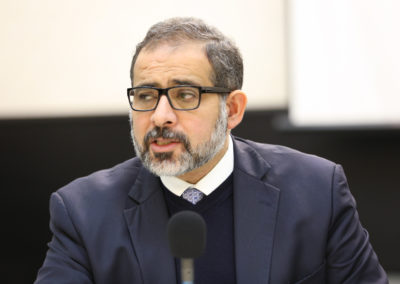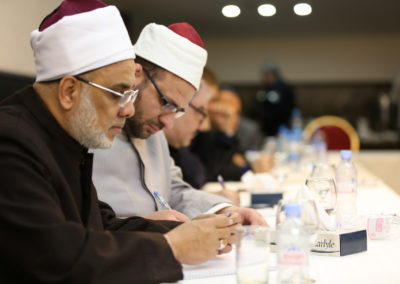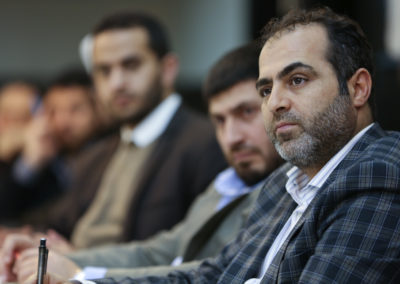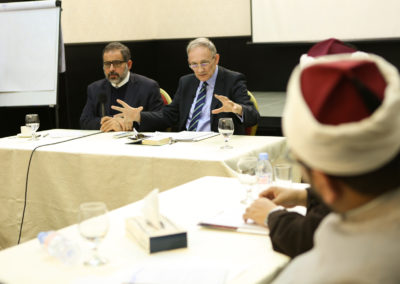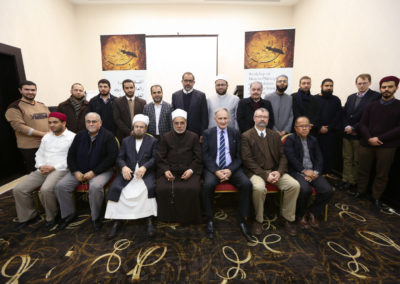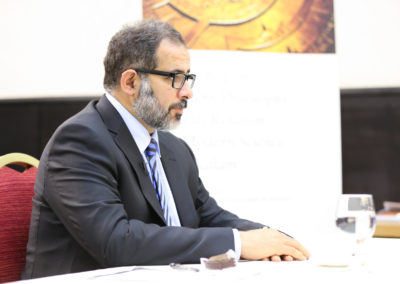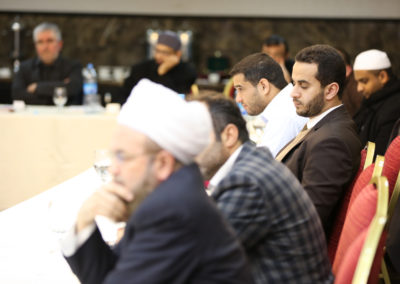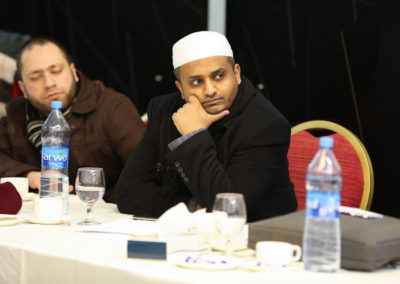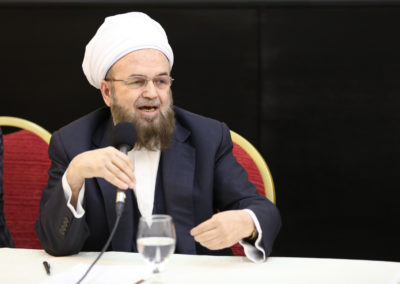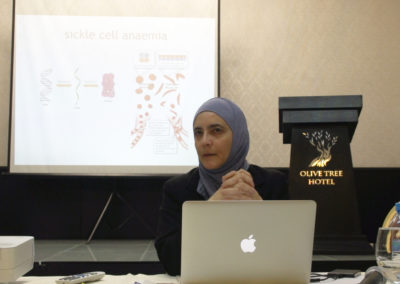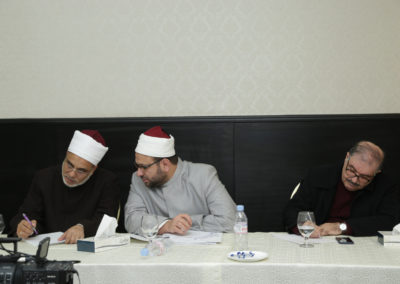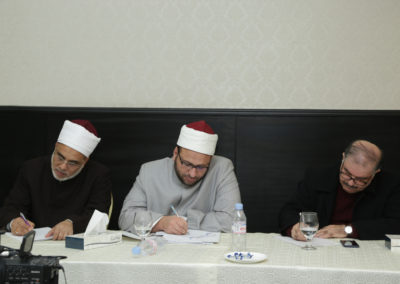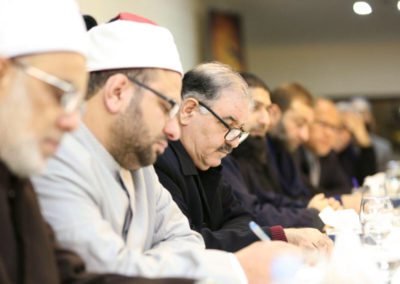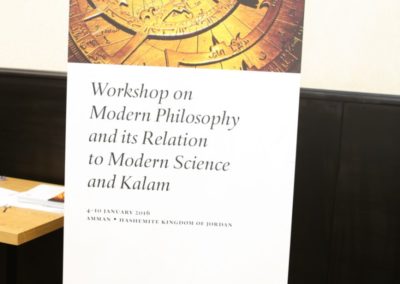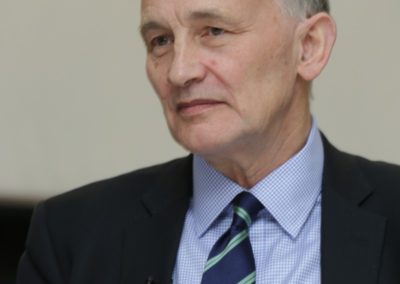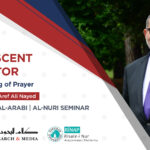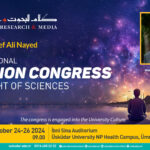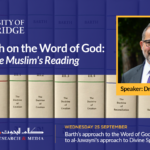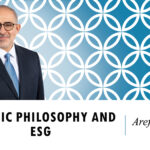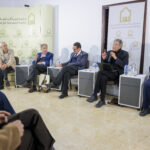With the first 3-year phase of its Islamic Analytic Theology initiative drawing to a close, Kalam Research & Media (KRM) hosted a Workshop on “Modern Philosophy and its Relation to Modern Science and Kalam” in Amman, Jordan, from January 4—10 in cooperation with the John Templeton Foundation. This workshop built on the experience gained from two initiatives: an intensive course on analytic theology held in Istanbul in 2014 and another intensive course on the kalam cosmological argument that was held in Tubingen in 2015.
The aim of these two initiatives was to begin intense conversations around topics in modern philosophy within traditional scholarly circles.
The workshop in Amman was attended by Sheikh Dr. Saeed Foudeh(leading scholar of kalam in Jordan), Sheikh Dr. Gamal Farouq (Dean of Faculty of Islamic Dawah at al-Azhar University, Cairo), Sheikh Salih al-Ghursi (lead scholar of the Falah Madrasa in Konya), Sheikh Bilal al-Najjar (leading scholar of logic and argumentation theory in Jordan), Dr. Amran Muhammad (Managing Director of the Islamic and Strategic Studies Institute, Kuala Lumpur), Dr. Ebrahim Shuaib (Lecturer at al-Azhar University, Cairo), Sheikh Mustafa Thabet (Researcher at Darul Ifta, Cairo), Sheikh Masuk Yamac (lead instructor of Kalam and the rational sciences at Istanbul Foundation for Education and Research [ISAR]), Dr. Amjad Rasheed (Professor at WISE University), Dr. Waleed Shawish (Associate Professor at WISE University), Sheikh Abdurrahman al-Idrissi (kalam scholar and instructor at the Ma’arij Institute, Amman), Sheikh Muhammad Abu-Ghosh (kalam scholar and instructor at Ma’arij institute) and Salah Nweider, research fellow at Kalam Research & Media.
From 4–7 January, workshop facilitators Mansoor Malik (M.Phil Warwick University) and Hamza Karamali (Researcher at Kalam Research & Media) gave a series of presentations on cosmological arguments for God, design arguments for God, the problem of evil, and modern epistemology, that described the structure of key arguments in the modern philosophical tradition, key counter-arguments, key definitions, and key problems. Each presentation was followed by discussion among the scholarly participants, who collaborated with workshop facilitators to refine their understanding of modern philosophy and then collectively analyzed and debated the material in light of the Kalam tradition. These discussions cultivated rigorous discussions from the attendees, with notable contributions made by Sheikh Salih al-Gharsi and Sheikh Bilal al-Najjar.
On 9 January speakers included Dr. Aref Ali Nayed (Founder and Chairman, Kalam Research and Media) spoke on the importance of philosophical and civilizational conversation in reviving the Kalam tradition; Dr. Basel Altaie, Professor of Cosmology at the University of Yarmouk, delivered a presentation on modern cosmology and its relation to the kalam tradition; Dr. Rana Dajani, Professor of Molecular Biology at Hashemite University, delivered a presentation on stem-cell research, biological evolution, and the importance of collaborative research between modern scientists and religious scholars; Dr. David Ford, Former Regius Professor of Divinity at University of Cambridge, presented on religious studies in the academic mainstream; and Dr. Nicholas Adams, Chair of Philosophical Theology at University of Birmingham delivered the final presentation on the relationship between philosophy and theology. The communication gap was resolved for Dr. Ford and Dr. Adams through live translations by Dr. Aref Ali Nayed and Abdurrahman Mihirig (researcher at Kalam Research & Media). Each presentation was followed by collegial discussions between presenters and participants.
On 10 January, Dr. Aref Ali Nayed delivered a presentation on the modern science of hermeneutics and its relationship to rational and spiritual elements within the Muslim intellectual tradition. This was followed by two important presentations by Sheikh Bilal al-Najjar on questions regarding the relationship between modern science and kalam, and Dr. Saeed Foudeh on the importance of KRM’s theological project and suggested several philosophical directions that it might take. The workshop closed with concluding remarks by Dr. Gamal Farouq (Dean of Faculty of Islamic Dawah at al-Azhar University, Cairo) who emphasized the importance of workshops in reviving the science of kalam and offered a five-step plan for bringing the kalam tradition into full conversation with modern philosophy and invited KRM to hold similar workshops in Egypt.
Throughout the course of the workshop, participating scholars offered their advice, support, and encouragement for KRM’s theological mission and suggested methods of future research and institutional collaboration. These suggestions, along with the bonds built in the workshop, will form the basis of the second three-year phase of KRM’s Islamic Analytic Theology project.



